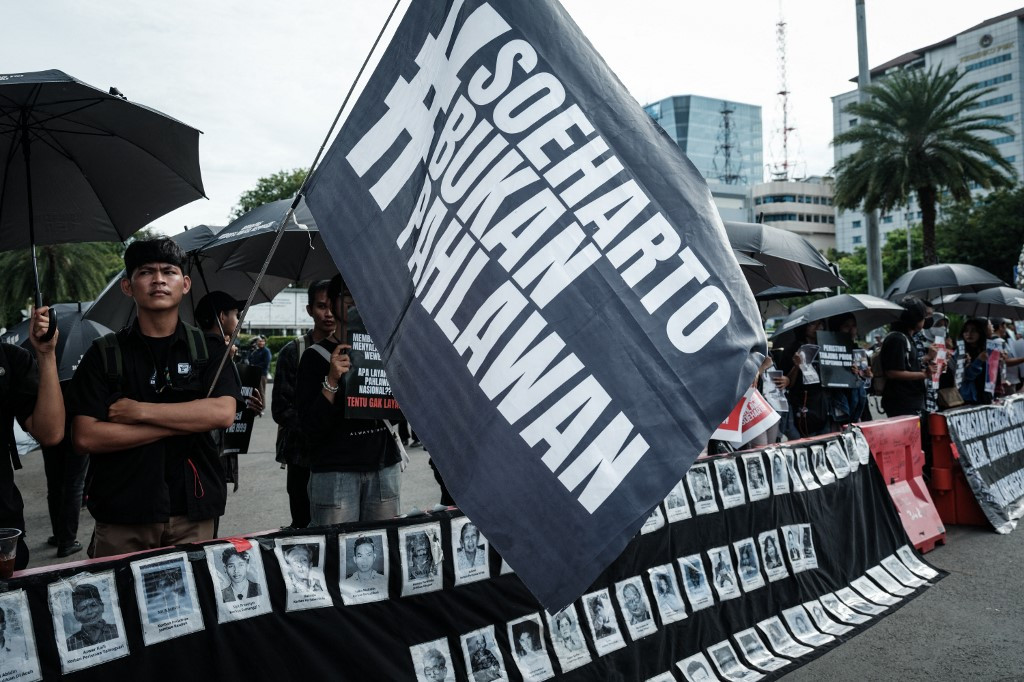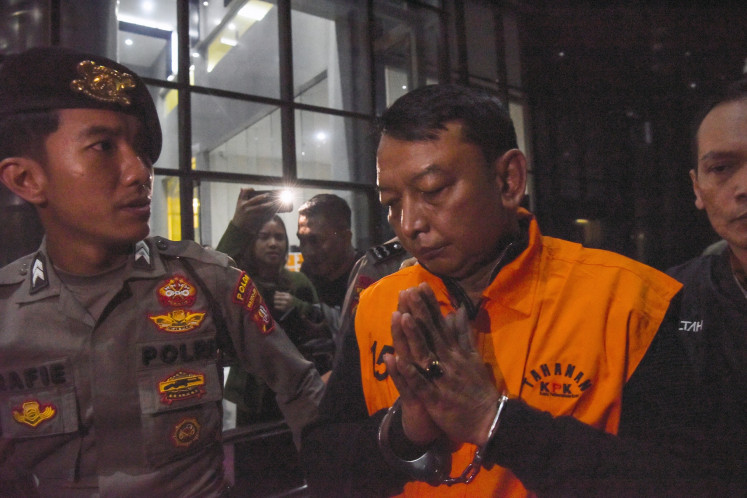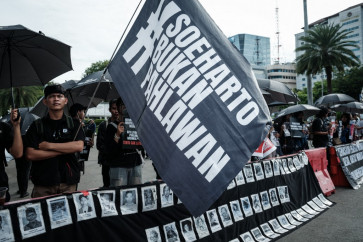Popular Reads
Top Results
Can't find what you're looking for?
View all search resultsPopular Reads
Top Results
Can't find what you're looking for?
View all search results‘Betraying reformasi’: Survivors of human rights cases oppose plan to name Soeharto hero
Naming former president Soeharto as national hero would reopen old wounds suffered by survivors of gross human rights violations and betray the mandate of the 1998 Reform era, activists have said.
Change text size
Gift Premium Articles
to Anyone
 A member of a civil society group ('left') holds a banner that reads “Suharto is not a hero“ during the 'Kamisan' (Thursday) rally on Nov. 6, 2025, opposing the government's plan to give former president Soeharto the title of national hero, near the presidential palace in Jakarta. Suharto, who died in 2008 aged 86, ruled Indonesia with an iron fist for more than three decades after seizing power in 1967. (AFP/Yasuyoshi Chiba)
A member of a civil society group ('left') holds a banner that reads “Suharto is not a hero“ during the 'Kamisan' (Thursday) rally on Nov. 6, 2025, opposing the government's plan to give former president Soeharto the title of national hero, near the presidential palace in Jakarta. Suharto, who died in 2008 aged 86, ruled Indonesia with an iron fist for more than three decades after seizing power in 1967. (AFP/Yasuyoshi Chiba)
F
or Bedjo Untung, who was imprisoned without trial after being wrongly accused of involvement with the Indonesian Communist Party (PKI), news of the government’s move to name former president Soeharto a national hero came as a bolt from the blue.
“I was shocked, disappointed and angry when I heard about such an absurd idea,” said Bedjo, who now chairs the 1965 Murder Victim's Research Foundation (YPKP 65), adding that Soeharto was a president who “brought suffering to the people”.
Bedjo was 17-years-old in September 1965, when there was an attempted coup against then-president Soekarno blamed on the now-defunct communist party. Mass incarcerations and massacres of thousands of PKI members and suspected members followed as Soeharto rose to power to become Indonesia’s president.
A survivor of torture during his imprisonment between 1970 and 1979, Bedjo warned that if the proposal to name Soeharto a hero was carried out, protests may break out as an expression of the “tremendous outrage” against such a move.
Survivors of state violence during Soeharto’s New Order regime have voiced fresh opposition against the government’s move to name the former strongman a national hero, calling the idea a betrayal of the 1998 reform movement and disregard for those who suffered during his 32-year authoritarian rule.
Utati Koesalah, who was also imprisoned after being wrongfully accused as a PKI sympathizer, said the national hero proposal reopened old wounds from her 11-year detention at Bukit Duri Prison, which began in 1966.

















